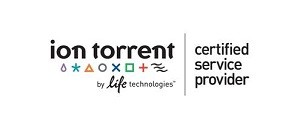The CarrierFree® genomic test analyzes, through massive parallel sequencing (Next Generation Sequencing – NGS), the DNA of 285 selected genes, we now know to be associated with several serious genetic diseases and particularly those that are inherited and expressed in a recessive manner. It is essential to note that carriers of these genetic diseases cannot be otherwise identified, as in the vast majority there is no previous family history nor do they exhibit any easily recognizable pathological features.
Therefore, the purpose of this genomic test is to determine whether a prospective parent is an unsuspecting healthy carrier of any of the >300 genetic diseases, through the detection of pathogenic gene mutations (see list of genes and genetic diseases).
CARRIERFREE_DISEASE GENE LIST ENGLISH.pdf
A positive result for the presence of a known pathogenic mutation or of a new obligatory pathogenic mutation in any single gene (or several genes) provides valuable information about reproductive risks, depending on the respective carrier status of the other reproductive partner-parent for the same gene(s), thus preventing the birth of an affected.
Prior knowledge of the carrier status of a future parent and following testing of the other reproductive partner for the corresponding gene-disease, leads to the identification of cases where both expectant parents are (unknowingly) carriers for the same genetic disease, in which case there is a 25% risk in each pregnancy for the birth of a severely affected child.
It is easily understood that prior knowledge of the existence of mutations in the same gene in both prospective parents offers the possibility of personalized reproductive measures, such as prenatal diagnosis or preimplantation genetic diagnosis through IVF, thus preventing the birth of an affected child.
Positive findings and reproductive options are discussed in the context of a personalized genetic counseling session.
The CarrierFree® test may detect ~95% of the pathologenic mutations in the 285 genes associated with several serious recessive or X-linked genetic diseases such as:
- β-thalassemia and sickle-cell anemia,
- cystic fibrosis,
- ~15 different types of hearing loss and deafness,
- ~120 neuromuscular disorders, such as Duchenne/Becker muscular dystrophy,
- ~45 genetic disorders of the eyes, e.g. retinopathies,
- ~16 metabolic disorders,
- ~95 severe pediatric diseases, such as Smith-Lemli-Opitz syndrome, infantile polycystic kidney disease, Zellweger syndrome, etc..
The number of genes and disorders may be expanded in the future.
Testing requires a biological sample (blood or saliva) from both reproductive partners (a sample collection and shipment kit will be provided). Prior to testing, both individuals must complete and sign the Test Information and Consent Form, with the option of receiving online pre-test genetic counseling.
The samples are shipped to our laboratory where genomic DNA is extracted, followed by massive parallel sequencing (NGS) of the 285 genes. Sequence reads are then aligned and mapped to the human genome reference sequence and all variants and putative mutations are prioritized through a proprietary specially developed in-house bioinformatics pipeline.
Only known pathogenic or obligatory pathogenic (nonsense, frameshift, consensus splice-site) mutations will be reported, together with a full clinical assessment and clinical genetic evaluation.
The test also includes MLPA analysis for the detection of deletions/duplications of the SMN1 and DMD genes, associated with the genetic disorders Spinal Muscular Atrophy ‐ SMA (OMIM 253300) and Duchenne/Becker muscular dystrophy (DMD/BMD ‐ OMIM 310200). In females only, we also include carrier testing for Fragile X syndrome.
In addition, we also perform high resolution karyotype analysis, for uncovering possible structural chromosomal abnormalities-translocations in a healthy parent-carrier (frequency in the general population about 1/400 – 1/500), as these may lead to an increased risk for affected children.
A final clinical report is released, containing all the relevant findings and recommendations for further actions, where applicable. Positive findings and reproductive options are discussed in the context of a personalized genetic counseling session.
Results are evaluated and reported based on current knowledge.
The sensitivity of the CarrierFree® test is ~95% and it may not detect deletions or duplications >15-20 base-pairs.
A negative result does not exclude totally the presence of a pathogenic mutation in the offspring, which may result from rare events such as, for example, a de novo mutation or the presence of germline mosaicism for a mutation in a parent.
InterGenetics is a Ion Torrent™ Certified Service Provider for Ion AmpliSeq sequencing on the Ion Proton platform.

